Information about Chemical Engineering Degrees
Chemical Engineering is an interdisciplinary subject that deals with transforming raw materials into useful products. People who work in Chemical Engineering focus on developing and optimising the processes used to create and refine products. Chemical engineers also strive to create better materials, which have improved properties, are more durable and last longer.
Chemical Engineering is a broad field of study that encompasses Chemistry, Biology, Applied Mathematics and Engineering Science.
Some of the things you’ll study during courses in Chemical Engineering are mechanics, thermodynamics, chemical reaction kinetics, and process design. You will need these engineering and scientific principles for your research and analytical work. You will also develop problem-solving and evaluating skills.
From optimising DNA sequencing to discovering how algae can be used as an alternative for petroleum, you could say chemical engineers have solutions to any problem. Chemical Engineering graduates learn to develop new drugs, and fertilizers, increase energy efficiency and manage chemical plants.
Many people might not understand exactly what you do and how it works – but that’s ok. You can simply tell them that many of the things they take for granted on a daily basis are influenced by your work. There’s no need to go into complex chemical formulas. You will sleep better at night knowing that you’re making the world safer, faster, and healthier.
Students who graduate with Bachelor’s or Master’s degrees in Chemical Engineering find jobs as chemical engineers, energy engineers, product development scientists, material scientists, nuclear engineers, and others.
Electrical Engineering degrees
Electrical Engineering degrees teach students advanced knowledge from Physics and Mathematics in combination with principles from electricity, electronics, and electromagnetism. Future Engineering graduates use their knowledge to design, create, install, and test equipment, devices, and systems that use electricity.
You should study a degree in Electrical Engineering if you’re fascinated by electricity and its major impact on our society. This career path is also ideal for people who like taking devices apart to understand how they function and then use the new insights to work on DIY (do it yourself) projects.
While studying Electrical Engineering, you can choose from various specialisations, such as Power Systems, Microelectronics, Electrophysics, Integrated Devices and Systems, Nanoelectronics, Communication Networks, Integrated Circuit Design, Computer Vision & Biometrics, and others.
Electrical Engineering courses and skills
The courses you’ll take during a degree in Electrical Engineering vary from one university and programme to another. However, you can expect to take classes in Engineering Mathematics and Modelling, Electronic Principles, Circuit Theory, Applied Electrodynamics, Calculus for Physical Scientists, Technical Writing, Electromagnetism, Introduction to Robotics, etc.
You’ll also learn how to use tools and software like frequency calibrators, signal generators, voltage or current meters, and many other devices that help engineers to diagnose and modify systems and circuits. On the software side, you’ll discover how computer-aided drafting tools, circuit simulators, and project management apps make your work more comfortable and efficient.
Electrical Engineering classes also help students develop industry-specific skills. They range from problem-solving, critical thinking, and self-learning to clear communication, organisational abilities, and creative thinking. These skills are essential for professional engineers who work alone or in teams and deal with projects that pose various challenges and require hard work.
Electrical Engineering careers
Electrical Engineering graduates can find job opportunities in any industry that relies on technology which uses electricity, electronics, or electromagnetism. They often work for companies that deal with the generation, distribution, and transmission of electric power. Some of the most popular jobs are systems engineer, electronics engineer, electrical engineer, nuclear engineer, network engineer, broadcast engineer, systems analyst, etc.
These are the most exciting recent trends in Electrical Engineering: high-efficiency photovoltaic cells, green energy electrical power converter, smart electrical grids, eye-tracking technology, graphene, and VR (Virtual Reality).
DOCTOR OF PHILOSOPHY IN MECHANICAL ENGINEERING (PHD)
OVERVIEW
The thesis-based Doctor of Philosophy (Ph.D.) in Mechanical Engineering is an advanced research-based degree. The program offers students an opportunity to work at the highest level of research, under the supervision of a faculty member. Students complete their candidacy examination within 18 months and complete their doctoral dissertation research within three to four years. It is normal department practice to initially register students in the M.A.Sc. program, and to transfer them to the Ph.D. program upon completion of the M.A.Sc. (or earlier if recommended by the supervising faculty member).
Students taking their Ph.D. in Mechanical Engineering can select one of four research areas: Design and Applied Mechanics, Mechatronics and Manufacturing, Thermofluids or Biomedical Engineering.*
*The Department of Applied Science also offers a full Biomedical Engineering (BMEG) program. Students in the BMEG program will achieve a degree in Biomedical Engineering.
FOR SPECIFIC PROGRAM REQUIREMENTS, PLEASE REFER TO THE DEPARTMENTAL PROGRAM WEBSITE
WHAT MAKES THE PROGRAM UNIQUE?
With eight Research Chairs and almost every research faculty member holding a least one NSERC grant, we have one of the most active research programs in Canada and consistently produce industry and academic leaders.
UBC is ranked in the World’s Top 40 Universities by the Shanghai Jiao Tong University Institute of Higher Education and our Mechanical Engineering professors are recognized nationally and internationally as leaders in their fields.
We offer affordable, competitive tuition fees and extend a number of scholarships, awards, top-ups to external awards, entrance fellowships, Research Assistantships (RA’s) and Teaching Assistantships (TA’s) to our students.I believe that UBC is the best place for me . My supervisor played a key role in finalizing my decision, as her research work strongly matches my research interests and future direction.Calvin Zhuhan Qiao
QUICK FACTS
FacultyFaculty of Applied ScienceMode Of DeliveryIn person at UBC VancouverRegistration OptionsFull-timeProgram ComponentsDissertationAcademic UnitDepartment of Mechanical EngineeringSpecializationMechanical EngineeringTuition (First Year)Domestic: $5,095.68 | International: $8,952.27
MEET A UBC REPRESENTATIVE
Q&A WITH UBC GRADUATE STUDENT AMBASSADORS
Date: Tuesday, 15 September 2020
Time: 17:00 to 18:00
Join Kelli Kadokawa and Shane Moore from the Faculty of Graduate and Postdoctoral Studies in conversation with some of our Graduate Student Ambassadors. In this open session the team will be answering any questions that you have on grad school at UBC, life in Vancouver and the application process.Register
ADMISSION INFORMATION & REQUIREMENTS
1) CHECK ELIGIBILITY
2) MEET DEADLINES
3) PREPARE APPLICATION
4) APPLY ONLINE
TUITION & FINANCIAL SUPPORT
TUITION
| FEES | CANADIAN CITIZEN / PERMANENT RESIDENT / REFUGEE / DIPLOMAT | INTERNATIONAL |
|---|---|---|
| Application Fee | $106.00 | $168.25 |
| TUITION * | ||
| Installments per year | 3 | 3 |
| Tuition per installment | $1,698.56 | $2,984.09 |
| Tuition per year (plus annual increase, usually 2%-5%) | $5,095.68 | $8,952.27 |
| Int. Tuition Award (ITA) per year (if eligible) | $3,200.00 (-) | |
| OTHER FEES AND COSTS | ||
| Student Fees (yearly) | $944.51 (approx.) | |
| Costs of living (yearly) | starting at $16,954.00 (check cost calculator) |
* Regular, full-time tuition. For on-leave, extension, continuing or part time (if applicable) fees see UBC Calendar.
All fees for the year are subject to adjustment and UBC reserves the right to change any fees without notice at any time, including tuition and student fees. Tuition fees are reviewed annually by the UBC Board of Governors. In recent years, tuition increases have been 2% for continuing domestic students and between 2% and 5% for continuing international students. New students may see higher increases in tuition. Admitted students who defer their admission are subject to the potentially higher tuition fees for incoming students effective at the later program start date. In case of a discrepancy between this webpage and the UBC Calendar, the UBC Calendar entry will be held to be correct.
FINANCIAL SUPPORT
Applicants to UBC have access to a variety of funding options, including merit-based (i.e. based on your academic performance) and need-based (i.e. based on your financial situation) opportunities.
PROGRAM FUNDING PACKAGES
All full-time students who begin a UBC-Vancouver PhD program in September 2018 or later will be provided with a funding package of at least $18,000 for each of the first four years of their PhD. The funding package may consist of any combination of internal or external awards, teaching-related work, research assistantships, and graduate academic assistantships. Please note that many graduate programs provide funding packages that are substantially greater than $18,000 per year. Please check with your prospective graduate program for specific details of the funding provided to its PhD students.
SCHOLARSHIPS & AWARDS (MERIT-BASED FUNDING)
All applicants are encouraged to review the awards listing to identify potential opportunities to fund their graduate education. The database lists merit-based scholarships and awards and allows for filtering by various criteria, such as domestic vs. international or degree level.
TEACHING ASSISTANTSHIPS (GTA)
Graduate programs may have Teaching Assistantships available for registered full-time graduate students. Full teaching assistantships involve 12 hours work per week in preparation, lecturing, or laboratory instruction although many graduate programs offer partial TA appointments at less than 12 hours per week. Teaching assistantship rates are set by collective bargaining between the University and the Teaching Assistants’ Union.
RESEARCH ASSISTANTSHIPS (GRA)
Many professors are able to provide Research Assistantships (GRA) from their research grants to support full-time graduate students studying under their direction. The duties usually constitute part of the student’s graduate degree requirements. A Graduate Research Assistantship is a form of financial support for a period of graduate study and is, therefore, not covered by a collective agreement. Unlike other forms of fellowship support for graduate students, the amount of a GRA is neither fixed nor subject to a university-wide formula. The stipend amounts vary widely, and are dependent on the field of study and the type of research grant from which the assistantship is being funded. Some research projects also require targeted research assistance and thus hire graduate students on an hourly basis.
FINANCIAL AID (NEED-BASED FUNDING)
Canadian and US applicants may qualify for governmental loans to finance their studies. Please review eligibility and types of loans.
All students may be able to access private sector or bank loans.
FOREIGN GOVERNMENT SCHOLARSHIPS
Many foreign governments provide support to their citizens in pursuing education abroad. International applicants should check the various governmental resources in their home country, such as the Department of Education, for available scholarships.
WORKING WHILE STUDYING
The possibility to pursue work to supplement income may depend on the demands the program has on students. It should be carefully weighed if work leads to prolonged program durations or whether work placements can be meaningfully embedded into a program.
International students enrolled as full-time students with a valid study permit can work on campus for unlimited hours and work off-campus for no more than 20 hours a week.
A good starting point to explore student jobs is the UBC Work Learn program or a Co-Op placement.
TAX CREDITS AND RRSP WITHDRAWALS
Students with taxable income in Canada may be able to claim federal or provincial tax credits.
Canadian residents with RRSP accounts may be able to use the Lifelong Learning Plan (LLP) which allows students to withdraw amounts from their registered retirement savings plan (RRSPs) to finance full-time training or education for themselves or their partner.
Please review Filing taxes in Canada on the student services website for more information.
COST CALCULATOR
Applicants have access to the cost calculator to develop a financial plan that takes into account various income sources and expenses.
CAREER OUTCOMES
87 students graduated between 2005 and 2013. Of these, career information was obtained for 78 alumni (based on research conducted between Feb-May 2016):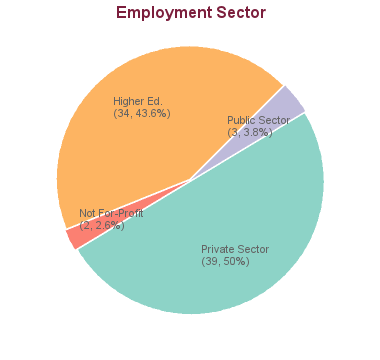
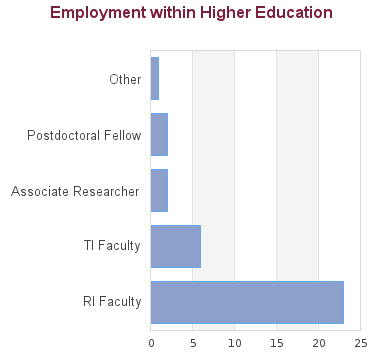
RI (Research-Intensive) Faculty: typically tenure-track faculty positions (equivalent of the North American Assistant Professor, Associate Professor, and Professor positions) in PhD-granting institutions
TI (Teaching-Intensive) Faculty: typically full-time faculty positions in colleges or in institutions not granting PhDs, and teaching faculty at PhD-granting institutions
Term Faculty: faculty in term appointments (e.g. sessional lecturers, visiting assistant professors, etc.)
SAMPLE EMPLOYERS IN HIGHER EDUCATION
University of British Columbia (4)
King Saud University (2)
University of Saskatchewan (2)
University of Adelaide
UNIKA Atma Jaya
University of Ontario Institute of Technology
University of Tehran
Abu Dhabi University
University of Michigan – Ann Arbor
Ohio University
SAMPLE EMPLOYERS OUTSIDE HIGHER EDUCATION
Pratt & Whitney Canada (3)
Coanda Research and Development Corporation (3)
Westport Innovations (3)
FPInnovations (2)
Candu Energy Inc. (2)
BMT WBM
PARC Inc.
Paperra
Vanmok Innovative Engineering Solutions
WK Investment Network
SAMPLE JOB TITLES OUTSIDE HIGHER EDUCATION
Senior Mechanical Engineer (4)
Project Engineer (2)
Scientist (2)
Manager (2)
Senior Piping Engineer (2)
Research Engineer (2)
Principal Scientist
Research Scientist
Business Development Manager
Director
PHD CAREER OUTCOME SURVEY
You may view the full report on career outcomes of UBC PhD graduates on outcomes.grad.ubc.ca.
DISCLAIMER
These data represent historical employment information and do not guarantee future employment prospects for graduates of this program. They are for informational purposes only. Data were collected through either alumni surveys or internet research.
CAREER OPTIONS
The graduates of the Ph.D. program find employment at academic institutions and in high-level research and development positions in industry and other institutions. Recent Ph.D. alumni have gone on to work as tenure-track professors in major Canadian and US universities. Others have been employed as research scientists, project managers and team leaders in high-tech startups or S&P 500 companies.
ENROLMENT, DURATION & OTHER STATS
These statistics show data for the Doctor of Philosophy in Mechanical Engineering (PhD). Data are separated for each degree program combination. You may view data for other degree options in the respective program profile.
ENROLMENT DATA
| 2019 | 2018 | 2017 | 2016 | 2015 | |
|---|---|---|---|---|---|
| Applications | 112 | 104 | 114 | 89 | 77 |
| Offers | 28 | 23 | 24 | 16 | 16 |
| New registrations | 17 | 18 | 18 | 14 | 11 |
| Total enrolment | 83 | 77 | 77 | 75 | 81 |
COMPLETION RATES & TIMES
This program has a graduation rate of 76.6% based on 47 students admitted between 2006 – 2009. Based on 57 graduations between 2015 – 2018 the minimum time to completion is 3.32 years and the maximum time is 7.99 years with an average of 5.24 years of study. All calculations exclude leave times.
DISCLAIMER
Admissions data refer to all UBC Vancouver applications, offers, new registrants for each year, May to April [data updated: 10 March 2020]. Enrolment data are based on March 1 snapshots. Program completion data are only provided for datasets comprised of more than 4 individuals. Rates and times of completion depend on a number of variables (e.g. curriculum requirements, student funding), some of which may have changed in recent years for some programs [data updated: 27 October 2019].
RESEARCH SUPERVISORS
This list shows faculty members with full supervisory privileges who are affiliated with this program. It is not a comprehensive list of all potential supervisors as faculty from other programs or faculty members without full supervisory privileges can request approvals to supervise graduate students in this program.
- Altintas, Yusuf (Virtual Machining, Computer Control of Manufacturing Systems, CAD/CAM, CNC Design, High Speed Feed Drive Control, Real Time Interpolation and Trajectory Generation for Machine Tools, Adaptive Control, Sensor Fused Intelligent Machining, Metal Cutting Mechanics, Chatter Vibrations in Machining, Piezo -Actuator Based Precision Machining, High Speed Milling, Optimal Machining of Aerospace Parts, Dies and Molds, Automation, Precision Engineering, Electro Mechanical Systems, Modeling and Analysis of Machining Processes, Mechanics, dynamics and control of micro-machining operations)
- Bacca, Mattia (Solid Mechanics, Adhesion and fracture, Soft materials, Biophysics)
- Bushe, William Kendal (Clean Energy, Combustion, Turbulence, Numerical Simulation, Computational Fluid Dynamics, IC Engines andThermal Power Generation)
- Chiao, Mu (MEMS, Micro Sensors, Micro Actuators, BioMEMS, Nanotechnology, Bioengineering, Electronic Packaging, Nanoscience, Energy sources for micro-electro-mechanical systems)
- Cripton, Peter (Trauma / Injuries, Cranio-Encephalic and Spinal Cord Trauma, Mechanical Systems, Spinal cord injury, neurotrauma, Traumatic Brain Injury, biomechanics, injury prevention, hip fracture, spine biomechanics)
- De Silva, Clarence Wilfred (Robotics)
- Elfring, Gwynn (Theoretical Fluid Mechanics, Complex Fluids, Cell Biomechanics, Capillary Phenomena, Applied Mathematics )
- Feng, Hsi-Yung (Modelization and Simulation, Software (Tools), Machining and Assembling, Milling, Prototyping, Computer-Aided Design and Manufacturing (CAD/CAM), Geometric Modeling, Multi-Axis CNC Machining, Machining Simulation, 3D Laser Scanning, 3D Printing)
- Frigaard, Ian (Fluid mechanics (visco-plastic fluids))
- Giang, Amanda (Atmospheric Pollutants, Climate Changes and Impacts, Chemical Pollutants, Social and Cultural Factors of Environmental Protection, Public Policies)
- Grecov, Dana (Rheology, Rheometry, Non-Newtonian Fluid Mechanics, Computational Fluid Mechanics, Liquid Crystals, Biolubricants, Lubricants, Journal Bearings, Multi-Phase Flow, Synovial Joints, Synovial Fluid, Arthrithis, Liquid crystals and nanomaterials, Biofluid Mechanics)
- Green, Sheldon (Fluid Mechanics, Biological and Biochemical Mechanisms, building ventilation, railroads, papermaking)
- Hodgson, Antony (Bioengineering, Biomechanics, Medical or Surgical Robotics, Medical Engineering, Electoral Reform, Single Transferable Vote, STV, Citizens’ Assembly, Fair Voting )
- Jaiman, Rajeev (Fluid-structure interaction, Computational methods and numerical analysis, Data-driven computing, Model order reduction, Bluff-body flows and flow-induced vibration, Flow control and drag reduction, Multiphase Flows)
- Jelovica, Jasmin (Stress Analysis, Production and Process Optimization, Metals and Alloys, Solid Mechanics, Finite element analysis, Structural optimization, Welding and joining of metals, Sandwich structures, Ultimate, fatigue and impact strength)
- Jin, Xiao Liang (Manufacturing Processes, Solid Mechanics, Manufacturing Processes for Advanced Materials, Vibration Assisted Machining, Machining Mechanics and Dynamics, Surface Integrity, Material Characterization)
- Kirchen, Patrick (Thermochemical Energy Conversion, Combustion, Internal Combustion Engines, Ion Transport Membranes, Emissions, Fuel Injection )
- Ma, Hongshen (Microfluidics; Instrumentation; Cell Sorting; Cell Biomechanics; Circulating Tumor Cells; Malaria and Red Blood Cell Deformability; Single Cell Technologies; Cell Migration and Chemotaxis)
- Merida-Donis, Walter (Clean energy, Electrochemical energy conversion, Thermodynamics, Low carbon fuels, Fuel cells and hydrogen)
- Nagamune, Ryozo (Control System, Servo-Control, Mechatronics, control engineering, robust control, modeling, wind turbine control, solar themal system control, automotive engine control, optimization)
- Noh, Minkyun (Mechatronics, Control System, Electric and Electronic Systems, Servo-Control, Robotics and Automation, Instruments, Machinery, Sensors and Devices, Mechatronic system design, Electric machines and drives, Precision engineering, Magnetic levitation, Magnetic bearings, Bearingless motors, Instrumentation, Robotics, Control, sensors, Actuators)
- Ollivier-Gooch, Carl (Numerical Analysis, Fluid Mechanics, Computer Sciences and Mathematical Tools, Algorithm Development for Computational Fluid Dynamics, Error and Stability Analysis for Unstructured Mesh Methods, Unstructured Mesh Generation, Applied Aerodynamics)
- Olson, James (Application of Physics and Fluid Mechanics to Problems Associated with the Pulp and Paper Industry, Mechanical Energy Reduction in Mechanical Pulping)
- Oxland, Thomas (Spinal Cord Injury, Aging Spine, Orthopaedic Implants)
- Phani, Srikantha (Dynamics of multiscale materials, structures and devices, Applied Mechanics, Micromechanics)
PAGES
DOCTORAL CITATIONS
A doctoral citation summarizes the nature of the independent research, provides a high-level overview of the study, states the significance of the work and says who will benefit from the findings in clear, non-specialized language, so that members of a lay audience will understand it.Citation containsItems10255010010
| YEAR | CITATION |
|---|---|
| 2020 | Dr. Falch developed methods to optimize the design of multidisciplinary mechatronic products, considering both qualitative and quantitative design criteria. This work will help designers to develop more accurate, reliable, esthetically appealing, and cost effective mechatronic products for use in industrial and engineering applications. |
| 2020 | One of the important technical challenges of heavy viscous oils concerns cost-effective transportation. Dr. Sarmadi used theoretical and computational methods to investigate a novel triple-layer core-annular lubricated pipeline flow. Her study established a novel method for the stable and efficient transport of highly viscous oils. |
| 2020 | Dr. Gao’s research investigated the use of ultrasonic vibration-assisted cutting in milling and drilling applications. He developed a novel ultrasonic vibration tool holder and a corresponding sensorless control system. This research will benefit the manufacturing industry in machining advanced material such as composites and titanium alloys. |
| 2020 | Dr. Lee developed a novel method to isolate and sequence RNA from specific single cells identified by imaging. He subsequently applied his method to sequence rare immune cell events and showed diverging decisions being made by single cells within a population. This novel method will improve our understanding of how immune cells fight disease. |
| 2019 | Dr. Khosravi developed high-speed imaging systems and algorithms to study combustion inside an engine. His work helps provide more insight into modern combustion strategies and to further optimize these strategies for cleaner and more efficient power delivery in combustion engines. |
| 2019 | Dr. Zou studied how to efficiently model engineering products using computers. Through his work, he discovered the fundamental issues and challenges of the modeling efficiency problem and presented effective solutions. His findings and solutions could significantly reduce the time and cost in engineering design and improve design productivity. |
| 2019 | Computer simulations are used extensively in scientific modeling and engineering design. Often, this process is iterative and requires meticulous care from a domain expert that can be extremely expensive. Dr. Zangeneh designed a systematic approach for the first time that automatically stabilizes such simulations without any human intervention. |
| 2019 | Dr. Maleki studied leakage in oil and gas wells in Canada. Through rigorous mathematical modelling and computational analysis, his research identified the key root causes of well leakage along with several methods to reduce or eliminate this leakage. His work contributes to more environmentally-friendly energy policy development and practices. |
| 2019 | Dr. Manav studied the mechanics of polymeric soft active materials using a combination of theory, molecular simulations, and experiments. His research established a relationship between the molecular scale properties of these materials and their macroscale mechanical properties. His work enables the application of these materials in the biomedical industry. |
| 2019 | Dr. Chen’s research aimed at optimizing sensor deployment locations for environmental monitoring. He developed information-based sampling techniques so that sensor nodes can retrieve maximum information from the environment. This research can lead to better sampling strategies and result in reduced costs and increased efficiency. |
Doctorate Engineering courses in Canada
222 international courses found, showing 1-10 belowOrder byPopularity Course subjectEngineering 1Study LevelDoctorate 1CountryCanada 1More filters +
- Featured institution
This Institution has a premium partnership with IDP to offer the best service for students.
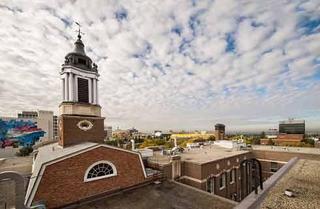 Doctor of Philosophy in Civil and Environmental Engineering – Biomechanica…University of AlbertaTHE world university rank: 136View course View institutionCourse qualificationPh.D.
Doctor of Philosophy in Civil and Environmental Engineering – Biomechanica…University of AlbertaTHE world university rank: 136View course View institutionCourse qualificationPh.D. 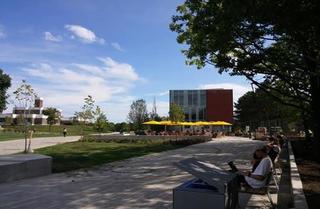 Doctor of Philosophy in Electrical and Computer EngineeringUniversity of WaterlooView course View institutionCourse qualificationPh.D.Total course feeCAD 83,664?INR 4,544,060Program fees are indicative only. Speak to your IDP study counsellor to get up-to-date course prices.
Doctor of Philosophy in Electrical and Computer EngineeringUniversity of WaterlooView course View institutionCourse qualificationPh.D.Total course feeCAD 83,664?INR 4,544,060Program fees are indicative only. Speak to your IDP study counsellor to get up-to-date course prices. Doctor of Philosophy in Civil and Environmental Engineering – Biomechanica…University of AlbertaTHE world university rank: 136View course View institutionCourse qualificationPh.D.
Doctor of Philosophy in Civil and Environmental Engineering – Biomechanica…University of AlbertaTHE world university rank: 136View course View institutionCourse qualificationPh.D. Doctor of Philosophy in Civil and Environmental Engineering – Construction…University of AlbertaTHE world university rank: 136View course View institutionCourse qualificationPh.D.
Doctor of Philosophy in Civil and Environmental Engineering – Construction…University of AlbertaTHE world university rank: 136View course View institutionCourse qualificationPh.D. Doctor of Philosophy in Civil and Environmental Engineering – Environmenta…University of AlbertaTHE world university rank: 136View course View institutionCourse qualificationPh.D.
Doctor of Philosophy in Civil and Environmental Engineering – Environmenta…University of AlbertaTHE world university rank: 136View course View institutionCourse qualificationPh.D. Doctor of Philosophy in Civil and Environmental Engineering – Mining Engin…University of AlbertaTHE world university rank: 136View course View institutionCourse qualificationPh.D.
Doctor of Philosophy in Civil and Environmental Engineering – Mining Engin…University of AlbertaTHE world university rank: 136View course View institutionCourse qualificationPh.D. Doctor of Philosophy in Civil and Environmental Engineering – Materials En…University of AlbertaTHE world university rank: 136View course View institutionCourse qualificationPh.D.
Doctor of Philosophy in Civil and Environmental Engineering – Materials En…University of AlbertaTHE world university rank: 136View course View institutionCourse qualificationPh.D. Doctor of Philosophy in Civil and Environmental Engineering – Transportati…University of AlbertaTHE world university rank: 136View course View institutionCourse qualificationPh.D.
Doctor of Philosophy in Civil and Environmental Engineering – Transportati…University of AlbertaTHE world university rank: 136View course View institutionCourse qualificationPh.D. Doctor of Philosophy in Civil and Environmental Engineering – Water Resour…University of AlbertaTHE world university rank: 136View course View institutionCourse qualificationPh.D.
Doctor of Philosophy in Civil and Environmental Engineering – Water Resour…University of AlbertaTHE world university rank: 136View course View institutionCourse qualificationPh.D.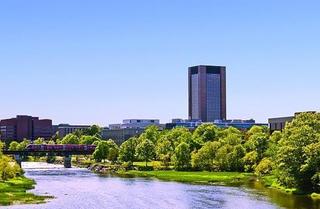 Doctor of Philosophy in Mechanical EngineeringCarleton UniversityView course View institutionCourse qualificationPh.D.
Doctor of Philosophy in Mechanical EngineeringCarleton UniversityView course View institutionCourse qualificationPh.D. Doctor of Philosophy in Civil and Environmental Engineering – Geotechnical…University of AlbertaTHE world university rank: 136View course View institutionCourse qualificationPh.D.
Doctor of Philosophy in Civil and Environmental Engineering – Geotechnical…University of AlbertaTHE world university rank: 136View course View institutionCourse qualificationPh.D.